Editor’s Note: The following article is part of the Ukraine Oligarch Watch series of reports supported by Objective Investigative Reporting Program, a MYMEDIA project funded by the Danish government. All articles in this series can be republished freely with credit to their source. Content is independent of the donor.
Story At A Glance
Konstantin Grigorishin’s opponents say he is an oligarch since he wields influence due to his links to President Petro Poroshenko, officials, political parties and media – a claim denied by Grigorishin. He is believed to be close to reformist lawmaker Sergii Leshchenko and Ukrainska Pravda, an online newspaper.
He used to be a partner of ex-Prime Minister Pavlo Lazarenko, ex-President Leonid Kuchma’s Chief of Staff Viktor Medvedchuk, the Surkis brothers, as well as an ally of presidents Viktor Yushchenko and Petro Poroshenko. Yet he has fallen out with most of them and gained the reputation of a straight shooter, publicly lashing out at corruption in the inner circles of Kuchma, Yushchenko and Poroshenko.
Grigorishin claims to be a visionary who has a grand plan on how to jumpstart the Ukrainian economy and vehemently denies the label “oligarch.” He argues that oligarchs have bled the country dry and says that Ukraine should get rid of its corrupt political system and modernize its economy.
Like his fellow oligarch Vadim Novinsky, Grigorishin used to be a Russian citizen and has lived much of his life in Russia, which makes him vulnerable to accusations of Kremlin links amid Russian dictator Vladimir Putin’s war against Ukraine. Grigorishin denies such links.
Despite his support for liberal politicians, Grigorishin also used to finance the Communist Party and cherishes a nostalgia for the Soviet Union.
Konstantin Grigorishin
Date of birth: Nov. 16, 1965.
Place of birth: Zaporizhzhia.
Wealth: According to the Forbes magazine, Grigorishin’s net worth amounted to $950 million in 2016. He ranked sixth among Ukrainian businessmen with $920 million in 2015, according to the Focus magazine.
Key assets: regional power supply firms, turbine producer Turboatom, engineering company NPZ imeni Frunze.
Personal: Married to Oksana Grigorishina, has a son and a daughter.
Praised for: Being outspoken, exposing top-level corruption.
Criticized for: Alleged links to Russia, allegedly getting privileges from the government, including transformer supply contracts, ties to controversial officials.
The story starts here:
The biography of Konstantin Grigorishin is intriguing: an influential businessman born in Soviet Ukraine who has done business in his homeland mostly as a Russian citizen until obtaining a Ukrainian passport this year.
For two decades, he’s held sway at the center of Ukraine’s oligarch club, rubbing shoulders with the country’s onerous elite.
Court documents show Grigorishin was involved in setting up offshore bank accounts for convicted embezzler and ex-Prime Minister Pavlo Lazarenko, who served a three-year prison sentence in America.
Later, Grigorishin was arrested on alleged cocaine possession charges after a bitter falling out with partners led by former presidential chief of staff Viktor Medvedchuk, who boasts Vladimir Putin as a godfather to his child.
Most recently, Grigorishin has been close – yet also in conflict – with current Ukrainian President Petro Poroshenko.
He has admitted to financing Ukraine’s Communist Party while still being a Russian citizen.
And yet, in a rare interview granted to the Kyiv Post, this at times outspoken tycoon insisted he is no oligarch.
The bald yet muscular man who appears to regularly pump iron and looks more like an athlete casts himself in tone and content of speech more like an intellectual.
The 51-year-old who has a degree in engineering physics from an elite Moscow university switches from juggling mathematical business calculations to reading books on astronomy and cosmology.
When talking about Ukraine’s economic goals, he said the gross domestic product should be $300 billion in 20 years. Then he calculated on a piece of paper that the economy should grow 6 percent annually to reach this figure.
The soft-spoken and mysterious oligarch has a sarcastic manner of speaking and a skeptical attitude: he often joked and smiled ironically. When thinking of something, he stared into empty space or glanced out the window.
Grigorishin’s office is not far from Kyiv Pechersk Lavra – a stronghold of the Russian Orthodox Church. It is rather simple and ascetic, contrasting with the lavish, luxurious premises of other oligarchs.
Having jetsetted for decades between Moscow, Kyiv, destinations in Europe and elsewhere, he has picked up English. He portrays himself more like a visionary who not only has a unique bird’s eye view of how the oligarchy has bled Ukraine dry, but knows how to get rid of the corrupt political system and modernize the country’s economy.
“The state is a tool for” oligarchs, Grigorishin said in an interview with the Kyiv Post. “They don’t create anything.”
He argued that the way out of Ukraine’s dire economic situation is eliminating rent-seeking and investing in infrastructure, including energy infrastructure, and in alternative energy.
Grigorishin is believed to have been a key source in publicly revealing oligarchic corruption, especially for journalists, including those from Ukrainska Pravda, the popular news website that critics say has close ties to the businessman.
Yet his opponents say he is an oligarch who not only wields influence but profits through lucrative business dealings involving political patronage due to his links to Poroshenko, past Ukrainian leaders, political parties and media. It’s a claim steadfastly denied by Grigorishin.
His opponents say he has profited from his political clout, getting lucrative contracts.
Some critics, including People’s Front lawmaker Anton Gerashchenko, have even claimed Grigorishin was an agent of Russian influence, pointing to his life in Russia and his electricity supplies to Luhansk-based separatists to uphold their claim.
Who is Grigorishin?
Grigorishin has built a vast energy empire by using his connections with government officials and now controls a network of regional power transmission companies and Zaporizhtransformator, which supplies the power industry with transformers, critics argue.
According to the Forbes magazine, Grigorishin’s net worth amounted to $950 million in 2016. He ranked sixth among Ukrainian businessmen with $920 million in 2015, according to Focus magazine.
Like his fellow oligarch Vadim Novinsky, Grigorishin used to be a Russian citizen and has lived much of his life in Russia, which makes him vulnerable to accusations of Kremlin links amid Russian dictator Vladimir Putin’s war against Ukraine. Grigorishin denies such accusations.
Russia apparently had an impact on his eclectic ideas: while supporting liberal politicians, he also cherishes a nostalgia for the Soviet Union.
Born in 1965 in the southeastern Ukrainian city of Zaporizhia, Grigorishin moved to then Soviet Russia in 1982. There he graduated from the Moscow Physics and Technology Institute.
He started as a trader in metals, agricultural products and oil products in Russia in the 1990s.
Grigorishin ventured back to Ukraine in 1995 during the crony capitalist and chaotic period that followed the collapse of the Soviet Union. He forged a partnership with Petro Kiritchenko, an associate of then Prime Minister Pavlo Lazarenko, who reportedly provided political protection to both of them. Grigorishin teamed up with Kiritchenko to take part in the shady and obscure privatization of regional power companies back then. Kiritchenko filed a $300 million lawsuit against Grigorishin in 2013 for allegedly defrauding him.
Lazarenko was later sentenced to nine years by U.S. authorities for fraud, corruption and money laundering, but spent only 1999 to 2002 in prison. He is currently in legal limbo in America and fighting Ukraine’s attempts to seize his money. He is also wanted on embezzlement charges in Ukraine.
After Lazarenko’s downfall, Grigorishin – whose name is mentioned in U.S. court documents as part of the trial – appears to have sought political patronage for doing business in Ukraine with the likes of the notorious Surkis brothers and Viktor Medvedchuk, powerful allies of then-President Leonid Kuchma who also provided political protection to businesses. At the time, one of the grouping’s major business operations was controlling regional electricity distribution.
But in 2002 they fell out, and Grigorishin accused them of extorting his electric power assets and of being behind his arrest at that time on charges of illegal weapons and cocaine possession.
After Grigorishin was released a week later, he moved back to Russia.
Grigorishin said Medvedchuk had apologized to him since then, and now they are on better terms.
Under Kuchma, Grigorishin first acquired his reputation of an outspoken straight shooter and was one of the first oligarchs to come out and reveal the extent of corruption and extortion by Ukraine’s rulers.
After moving to Russia, Grigorishin did not take his eyes off his native Ukraine. He soon forged another influential local ally — Poroshenko.
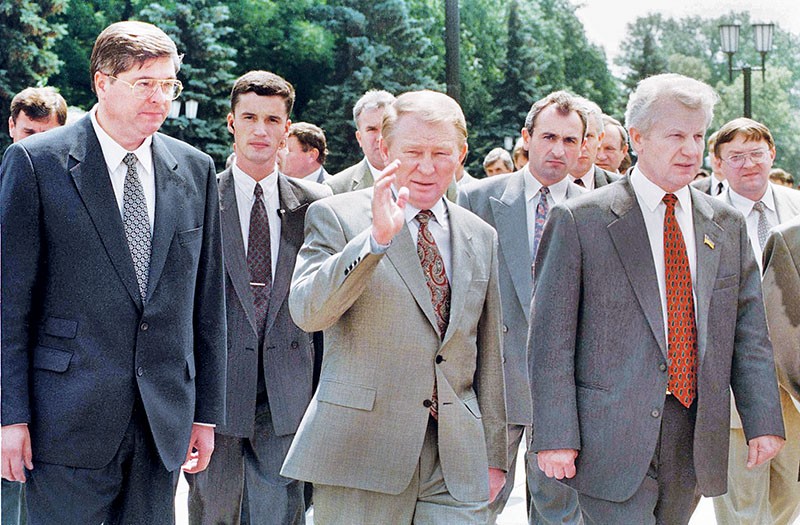
In Poroshenko’s shadow
Grigorishin supported the 2004 Orange Revolution, in which Poroshenko played a major role as a key leader of the party of Viktor Yushchenko, who became president after pro-Western protests overturned a rigged election in favor of his rival, Viktor Yanukovych.
But subsequently Grigorishin fell out with Yushchenko and criticized the corruption of his inner circle. After this, the Security Service of Ukraine even banned him from entering Ukraine in 2008, accusing him of raiding energy companies.
Grigorishin has business ties with Poroshenko dating back to at least 2005.
Grigorishin and Poroshenko co-own Kyiv, a company that leases a 6.4 hectare land plot near the Kyiv Pechersk Lavra monastery, while the office of Grigorishin’s Energy Standard group is located in the same building and on the same property as that of International Investment Bank, co-owned by Poroshenko and close business-political partner Ihor Kononenko.
Poroshenko and Grigorishin also used to co-own the Sevastopol Sea Plant, a shipyard, until 2010. In 2005 they unsuccessfully tried to buy Inter, a television channel, from businessman Igor Pluzhnikov.
Meanwhile, tycoon Ihor Kolomoisky testified in a London court in 2007 that Grigorishin had donated $12 million to Poroshenko, then an opposition politician, under Kuchma.
Though Grigorishin still regularly meets Poroshenko, their relations have apparently become more strained recently. His criticism of top-level corruption, as well as his meetings with anti-corruption crusader and lawmaker Sergii Leshchenko, who has become a harsh critic of the president, and his conflicts with Poroshenko allies Borys Lozhkin and Ihor Kononenko could have affected his relations with Poroshenko.
A classical oligarch?
Grigorishin has been accused of profiteering due to his ties to Poroshenko.
“The fact that Grigorishin has more opportunities than other businesspeople is obvious,” political analyst Taras Berezovets told the Kyiv Post. “He was trying to influence the Presidential Administration’s policy and obtained privileges… And he’s pursuing an aggressive business model.”
Lawmaker Anton Gerashchenko agreed, saying that Grigorishin is a “classical oligarch who uses power for earning money and influence.”
After Poroshenko became president, Grigorishin increased his influence on the energy industry.
Grigorishin has stakes in many power supply companies. Specifically, he controls Luhansk Energy Association and Vinnytsiaoblenergo and holds 50 percent stakes in Poltavaoblenergo, Chernihivoblenergo and Sumyoblenergo. He also co-owns Cherkasyoblenergo and turbine producer Turboatom and controls Sumy-based NPO imeni Frunze, an engineering company.
In late 2014 Yuriy Kasich, a former executive at one of Grigorishin’s companies, was appointed as CEO of state power transmission company Ukrenergo, while Volodymyr Demchyshyn, who was seen as close to Grigorishin, became energy minister. In October 2015, Kasich was replaced with Vsevolod Kovalchuk, who is also a former executive at one of Grigorishin’s firms.
Grigorishin has admitted that he had recommended the appointment of Kasich and Deputy Energy Minister Oleksandr Svetelik. He has also praised Demchyshyn and said that the minister “listens” to his opinion.
In 2015 several people linked to Grigorishin were appointed to the National Commission for Energy and Utilities Regulation.
Grigorishin’s critics say that his increased clout in the energy industry allowed his Zaporizhtransformator company to get a contract to supply transformers to Ukrenergo in 2015.
Ukrenergo said then that it planned to buy transformers for over Hr 500 million from Zaporizhtransformator. But the company’s transformers were 72.6 percent more expensive than those of German engineering company Siemens, which triggered accusations of corruption.
Grigorishin denied the accusations. “I’m a businessman,” he told the Kyiv Post. “If I know I can sell equipment at a higher price, I won’t sell it cheaper.”
He also argued that the comparison with Siemens was inaccurate because transformers of different sizes, models and forms have different prices.
“It’s hard to argue with people like that,” he said. “I talk about higher mathematics, and they don’t know the multiplication table. That’s why they start spitting and saying that I’m a Kremlin spy, thief and corrupt person.”
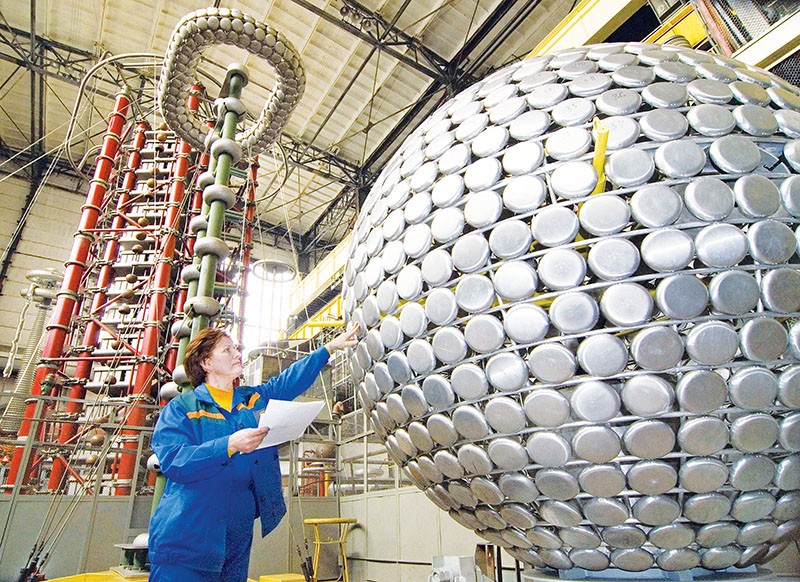
A transforming contract
Subsequently the plans for buying Grigorishin’s transformers were cancelled under public pressure, though in February Zaporizhtransformator won another Ukrenergo supply contract.
Ukrenergo’s management was accused of canceling prepayments for transformers to the future winner of the tender – a condition that would benefit Grigorishin because his foreign competitors would not like to risk participating due to exchange rate fluctuations.
In January, Interior Minister Arsen Avakov and then-Prime Minister Arseniy Yatsenyuk accused Demchyshyn and Ukrenergo of protecting Grigorishin’s interests, with Yatsenyuk disparagingly calling his opponent a “demi-oligarch.”
Avakov said in late 2015 that there was a criminal case against Ukrenergo’s management linked to Grigorishin. However, the Prosecutor General’s Office said it was investigating top executives of Ukrenergo on suspicion of abusing their power under Yanukovych, when Grigorishin had no influence on the company.
Andriy Gerus, a former member of the energy regulator and longtime critic of Grigorishin, said then, however, that Zaporizhtransformator had gotten the contract honestly and offered record low prices due to public pressure.
But Gerus accused Zaporizhtransformator of minimizing tax payments by keeping its export prices low and transferring Hr 15.6 billion abroad. The money was transferred to Russia and Austria, he claimed.
In January the State Fiscal Service also said that it was investigating a tax evasion case against Grigorishin’s NPO imeni Frunze.
Gerashchenko has accused the company of evading taxes by transferring $70 million to offshore firms and exporting products at below-market prices, which he claimed caused losses worth $120 million to the company.
Grigorishin denies the accusations.
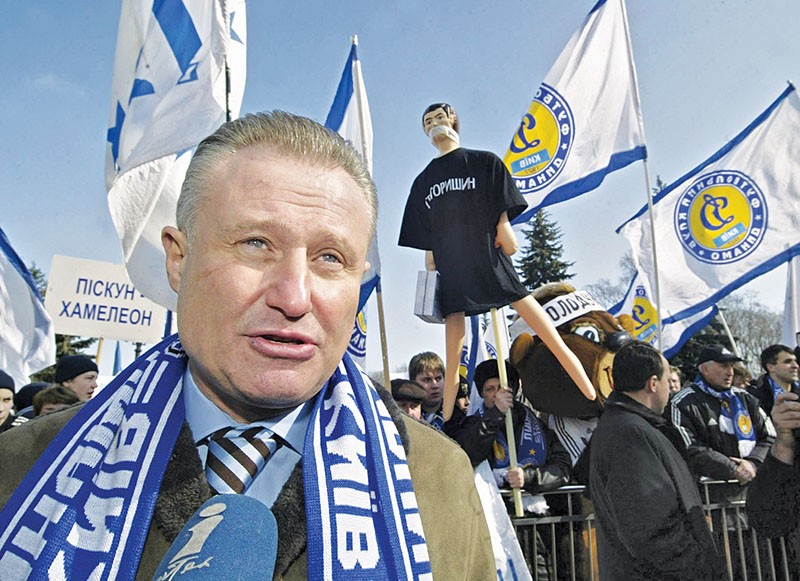
Under Yanukovych
With Yanukovych, who became president in 2010, Grigorishin had less cordial relations. He was seldom seen in Ukraine during that period but has backed the strongly pro-Russian Communist Party of Ukraine during this period — supposedly to gain some political leverage.
Grigorishin is mentioned in the off-the-book payment ledgers allegedly of Yanukovych’s Party of Regions. In an entry whose meaning is not entirely clear, Vitaly Kalyuzhny, then a lawmaker from the party, got $10,000 for “expenses on admission dated Nov. 2, 2009 Grigorishin K.I.” on Nov. 9, 2009.
Grigorishin denied having anything to do with the Party of Regions’ accounting.
“I’m not acquainted with Kalyuzhny,” he said. “Even if I had some financial dealings with officials, they were not on the scale of $10,000… If they had written ’$10 million,’ maybe I would start doubting.”
Grigorishin’s influence rose after Yanukovych fled Ukraine during the 2013-2014 EuroMaidan Revolution and Poroshenko was subsequently elected as president in May 2014.
However, in the interview with the Kyiv Post, Grigorishin dismissed the uprising that ousted Yanukovych as a “children’s revolution” similar to the one in William Golding’s ‘Lord of the Flies’.”
He argued that both Russia and Ukraine had failed to evolve since the collapse of the Soviet Union in 1991. The only difference is that Ukrainians do not have a “father figure” similar to Russian President Vladimir Putin, Grigorishin said.
Russian love
In 2015, Russian authorities opened a criminal case against Grigorishin, accusing him of evading taxes worth 675 million rubles, which he denies. As a result, he had to permanently move back to Ukraine.
Grigorishin told the Kyiv Post, however, that the case was a result of a business conflict rather than a political one.
In April, a Russian court issued an arrest warrant for Grigorishin in absentia, and after that Grigorishin got Ukrainian citizenship.
Despite the Russian criminal case, Grigorishin has faced accusations of being tied to the Kremlin, given the long period when he has lived and prospered in Russia as a businessman.
He told the Kyiv Post that he liked Moscow more than Kyiv because “there are fewer interesting people to talk to here.”
Gerashchenko argued that the Russian criminal case against him was allegedly a ploy to help Grigorishin build his argument in Kyiv to be granted Ukrainian citizenship.
The speculation on Grigorishin’s ties to Russia was also prompted by his help in negotiating a deal on importing coal and electricity from Russia in 2014. The agreement was controversial in that the contracts recognized recently occupied Crimea as part of the Russian Federation.
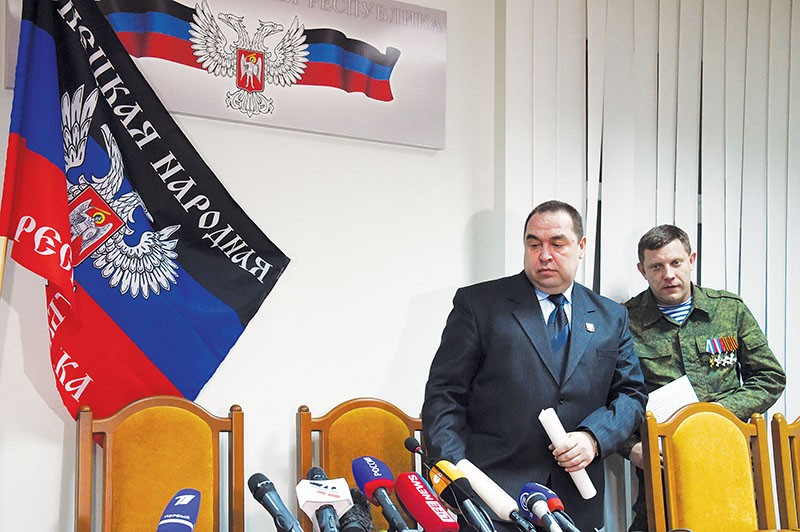
AFP PHOTO / DOMINIQUE FAGET / AFP PHOTO / DOMINIQUE FAGET
Luhansk scandal
Grigorishin’s Luhansk Energy Association, a power supply firm, has been accused of having good relations with Luhansk-based Kremlin-backed separatists and paying taxes to them, which the company vehemently denies.
“Everyone, including the country’s leadership, is linked to separatists,” Denys Kazansky, a top political blogger from Donetsk, told the Kyiv Post. “…The whole system is based on cooperating with the people we are fighting.”
Talking about Grigorishin, he argued that everyone “who operates there makes payments to (separatists) because otherwise it’s impossible (to work).”
Oleksiy Svetikov, a pro-Ukrainian activist from the city of Severodonetsk in Luhansk Oblast, shares this sentiment.
“There is a hybrid war launched by Russia against Ukraine, and Russian-owned companies are operating in Luhansk Oblast,” Svetikov said, referring to Grigorishin’s firm.
He also argued that Luhansk Energy Association was effectively subsidizing Kremlin-backed separatists by supplying power to them free of charge. Moreover, electricity prices set for Ukrainian-controlled areas are double the prices for separatist areas, which means they are getting power at the cost of Ukrainian consumers, he added.
Consumers in Russian-occupied areas keep paying for power but the funds are not transferred to Ukrainian-controlled territories. Luhansk-based militants have argued that it is technically and legally impossible.
Luhansk Energy Association has also come under fire for failing to move its registration from Russian-occupied Luhansk to Ukrainian-controlled areas, and the company argues there are no legal grounds for that. Another accusation is that the supplies to separatist areas are reliable, while those to Ukrainian-held areas are regularly halted.
Apparently addressing these concerns, Luhansk Energy Association said in September it was planning to stop power supplies to Russian-occupied territories once it builds a supply line that would make Ukrainian consumers independent from the electricity system in the occupied territories. But currently the supplies continue.
Moreover, in July, Kremlin-backed separatists set up their own firm to collect payments for Luhansk Energy Association’s supplies, called TD Nefteprodukt and reportedly linked to tycoon Serhiy Kurchenko. As a result, the Ukrainian company now argues that it does not operate in the occupied territories.
Some executives of Luhansk Energy Association switched to TD Nefteprodukt, which triggered speculation on links between the two companies.
Debate over cadres
Grigorishin’s influence on the energy industry under Poroshenko’s presidency has sparked a bitter conflict with Yatsenyuk, Avakov and Poroshenko’s former chief of staff Borys Lozhkin, whose appointees clashed with Grigorishin allies.
In an Oct. 1, 2015 interview with Ukrainska Pravda, Grigorishin lashed out at what he saw as Lozhkin’s failure to select competent cadres for government posts.
“We know that Borys Yevgenyevich is not a very educated person, based on his fake diplomas,” he said then. “Now he’s looking for ministers who will determine the country’s development for decades to come – the finance and economy ministers – and finds restaurant managers.”
Lozhkin denies the accusations.
Grigorishin told the Kyiv Post he believed Ukrainian authorities’ human resource policy both under Lozhkin and before him had been a disaster.
This human resource policy “began when Kuchma appointed Yanukovych as governor of Donetsk Oblast” in 1997, he said. “… Before Yanukovych became president, it had been degrading gradually. People from Donetsk’s slums began to manage the country’s economy.”
He argued that Ukrainian authorities had been ignoring “social laws,” including the selection of competent cadres.
“Our world exists because there are natural laws,” he said. “If you abolish all laws, the world will cease to exist. Ukrainian society has abolished certain social laws, laws of hierarchy and power.”
A critic of government
For similar reasons, Grigorishin has attacked Yatsenyuk and his Cabinet, including Economy Minister Aivaras Abromavicius and Finance Minister Natalie Jaresko. He accused Yatsenyuk’s government of unprofessionalism and failure to set ambitious goals for economic growth.
He has also accused Yatsenyuk of lobbying for tycoon Rinat Akhmetov’s interests. Yatsenyuk denies the accusations.
“Corrupt schemes built under Yanukovych and often before him are being preserved,” he told Ukrainska Pravda. “The government is doing nothing to destroy them and is just changing beneficiaries.”
He also said that 90 percent of Cabinet’s rulings were “based on (Yatsenyuk’s) personal interests – political or economic ones.”
“He thinks of his political future and his own pockets,” he said. “I think the latter prevails now… Yatsenyuk’s Cabinet is not only unable to stop corruption but also encourages it.”
In late 2015 Grigorishin supported plans to replace Yatsenyuk with ex-Georgian President Mikheil Saakashvili, though these efforts ultimately failed.
Friendly parties
Yatsenyuk and other People’s Front members have accused Grigorishin of wielding enormous power through his links to both Poroshenko and several political parties.
Grigorishin has admitted that he used to finance the Communist Party, arguing that he was doing it for political protection.
He also reportedly used to finance the Yabluko (Apple) party and Medvedchuk’s United Social Democratic Party.
Meanwhile, Grigorishin told the Novoye Vremya magazine in December 2015 that he had lent $12 million to Avakov and Viktor Baloga – both members of Yushchenko’s Our Ukraine party then – for elections in 2007.
Critics also argue that Grigorishin is linked to the EuroOptimist reformist group in parliament, including Poroshenko Bloc lawmaker Sergii Leshchenko.
Leshchenko and Grigorishin have admitted that they are acquainted but denied having any political or financial links to each other.
Leshchenko said in July he had known Grigorishin for 12 years but said they had never had any common “political projects or financial relations.”
Friendly media
Ukrainska Pravda, where Leshchenko used to be a deputy chief editor, is a news outlet with which Grigorishin shares “values and was always ready to help them but not with money,” he told Novoye Vremya.
Moreover, Ukrainska Pravda rents office space from Grigorishin in Kyiv, and in July former Ecology Minister Igor Shevchenko published a photo of Grigorishin meeting Ukrainska Pravda’s chief editor Sevgil Musayeva-Borovik in a cafe.
Both Grigorishin and Ukrainska Pravda have denied having any financial or political connections to each other.
Soviet nostalgia
Despite his support for liberal publications and political groups, Grigorishin has praised the Soviet period.
He portrays the Soviet Union as a more advanced and wealthier industrial society than modern Ukraine.
Grigorishin told the Kyiv Post that he agreed with the ideas of Sergei Glazyev, a Russian supporter of Soviet-style economic interventionism and an advisor to Putin. Grigorishin said, however, that Glazyev’s model will not work in Ukraine because “it will turn into another corruption scheme and cause hyperinflation.”
He also said that he was against the policy of decommunization – the dismantlement of Soviet-era monuments and the renaming of streets with Soviet names – calling it “barbarity.”
Grigorishin added, however, that he was against the Soviet Union’s repressive totalitarian policies.
“I was an anti-Soviet guy and dissident when I was a school student,” he said. “My parents were always summoned to school.”
Vision for Ukraine
Grigorishin argued that Ukraine had wasted the entire period since it gained independence in 1991 and lived off the infrastructure and industry created in the Soviet Union. He even compared Ukraine to the barbarians who destroyed the Roman Empire.
“When vandals invaded Rome, they lived well during a couple of generations,” he argued. “They didn’t invest anything but palaces and aqueducts still worked.”
He argued that “oligarchs had converted this (Soviet) infrastructure into their toys – soccer clubs, penthouses, yachts, planes” but had failed to create a competitive modern economy.
Unless Ukraine manages to revive its economy and replace the dilapidated Soviet infrastructure, Ukraine’s economy will be the size of Somalia’s in 20 years, Grigorishin argued.
“But people won’t be able to live like in Somalia. Neighbors won’t allow that, and the country will cease to exist,” Grigorishin said in a reference to the possibility of Russia dismembering Ukraine.
He said that Ukraine could become a “liberal” Somalia. “If you want to visit your relatives in a nearby village, you’ll have to start an expedition,” Grigorishin said. “You’ll have to take weapons and food, and maybe you won’t even get there.”
Grigorishin criticized the Ukrainian government’s modest economic growth targets, saying that they are not sufficient. He added that the growth target should be 6 to 7 percent per year.
According to Grigorishin, the secret to economic success is attracting both government and private funds from abroad to finance the construction of infrastructure, including transport and energy infrastructure.
“An energy revolution is under way,” Grigorishin added. “Mankind’s whole development can be viewed as the evolution of energy consumption.”
He passionately talked about alternative energy sources, including solar and wind energy, and even discussed the future prospects of cutting-edge hyperloop and space-based solar power technologies.
Unique oligarch
Grigorishin is a contradictory figure.
Like any other big businessman in Ukraine, he could not have avoided links to controversial officials and benefiting from his ties to government officials. He also has links to media and political parties.
And his ties to Russia have become a major controversy.
However, political analysts Volodymyr Fesenko and Vitaly Bala believe he is not an oligarch in the classical sense because his links to politics and media are rather tenuous, compared to other tycoons.
Moreover, his apparent support for anti-corruption and reform agenda pursued by liberal media and politicians is criticized as a sign of political influence by some but is seen as an upside by others. All of this makes him one of Ukraine’s most unique and unusual tycoons.
You can also highlight the text and press Ctrl + Enter


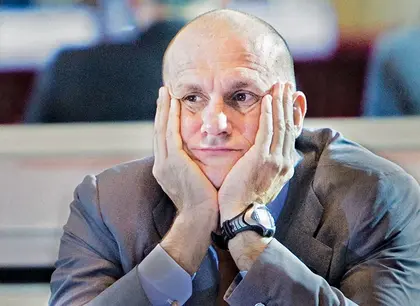
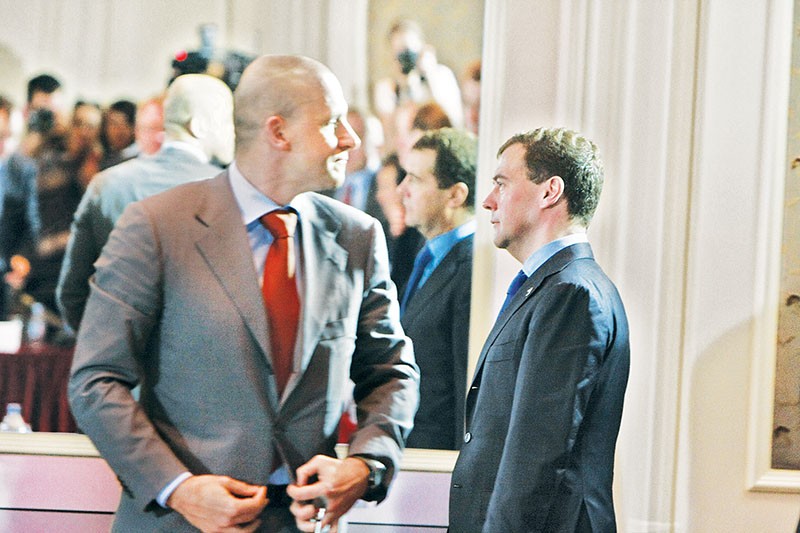
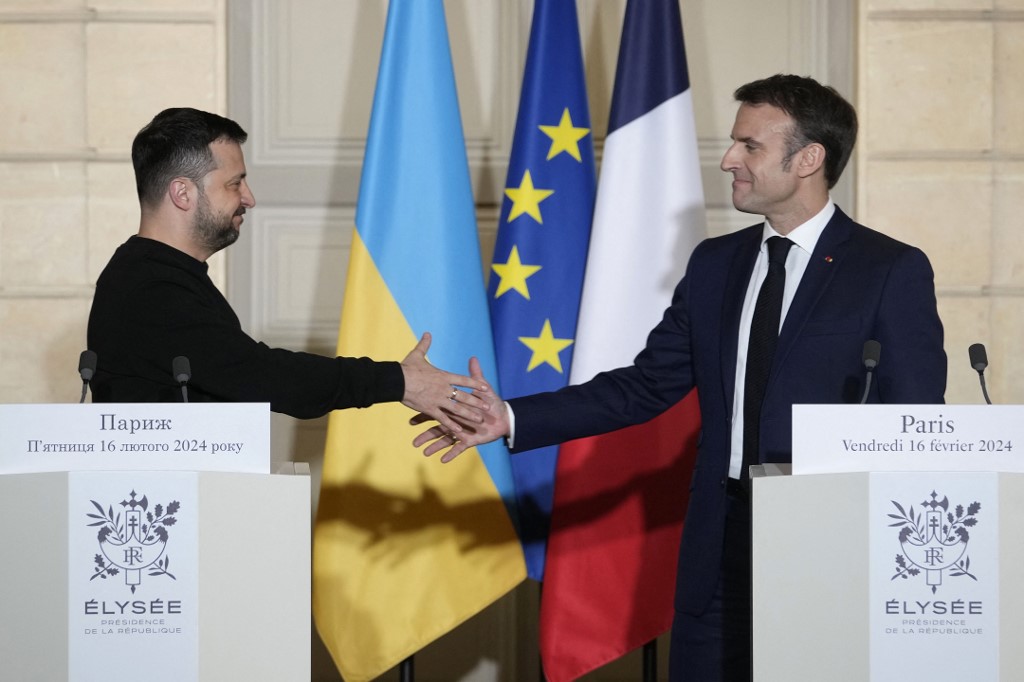
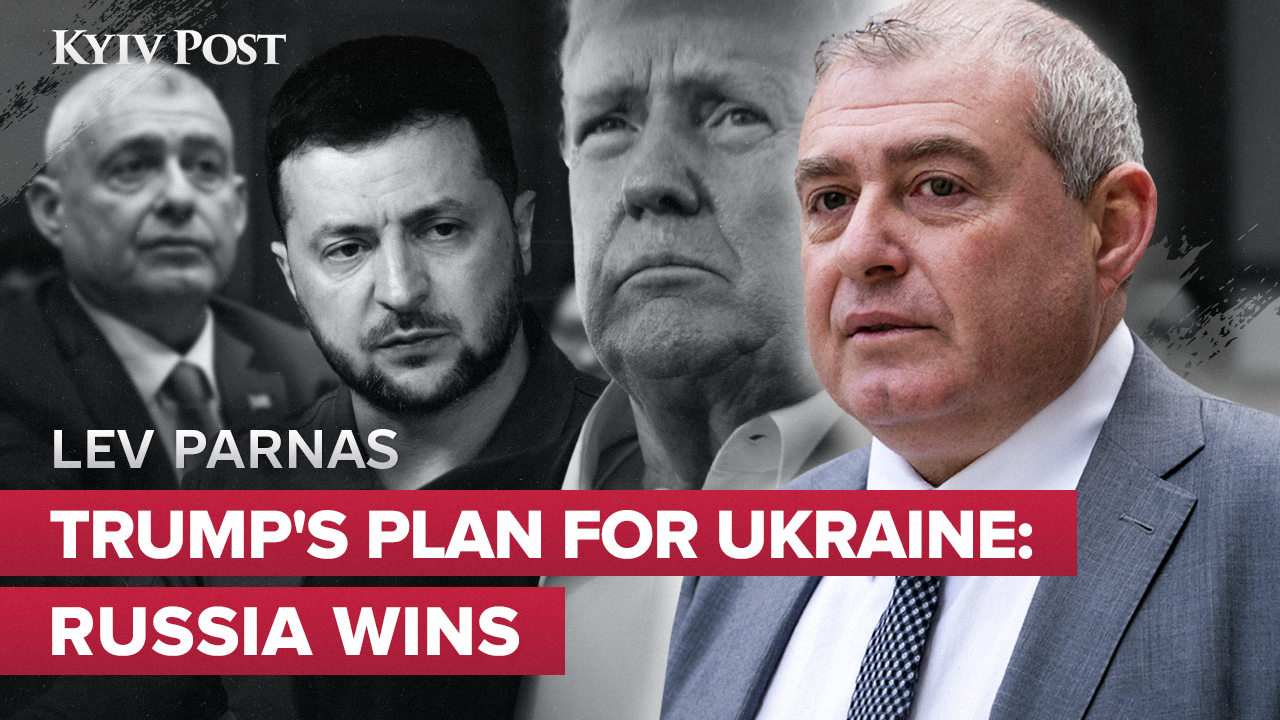
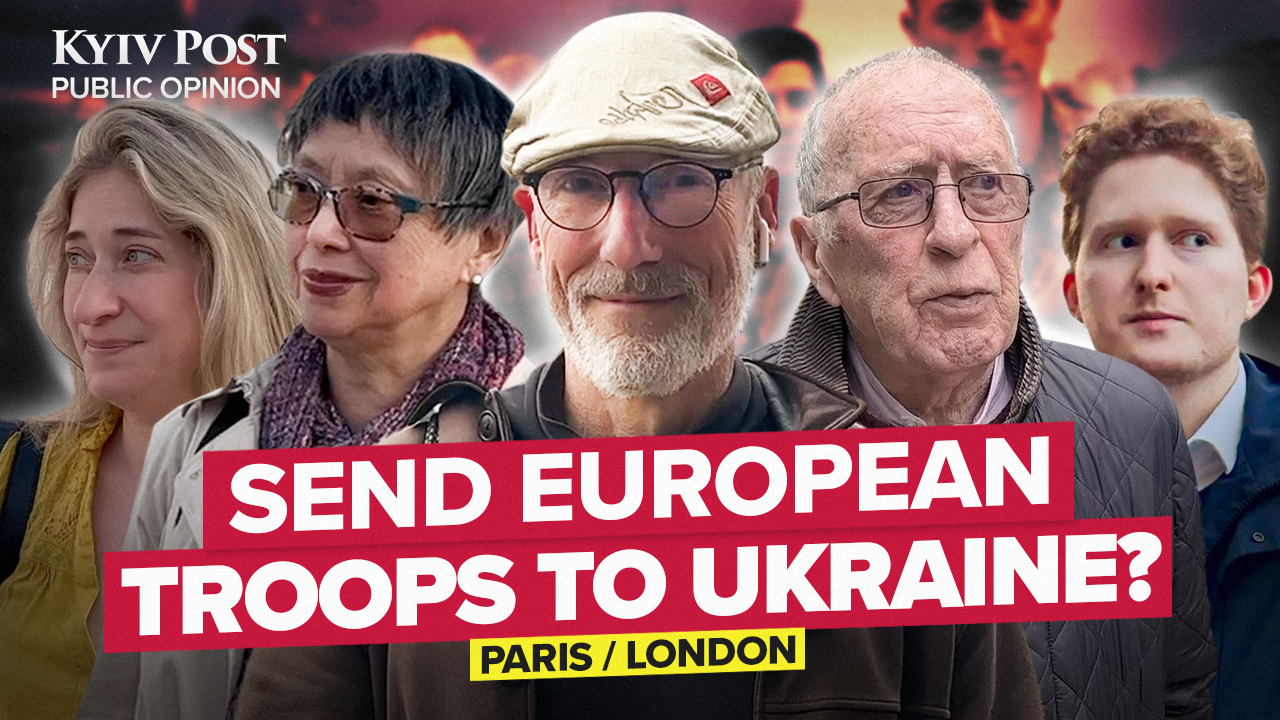
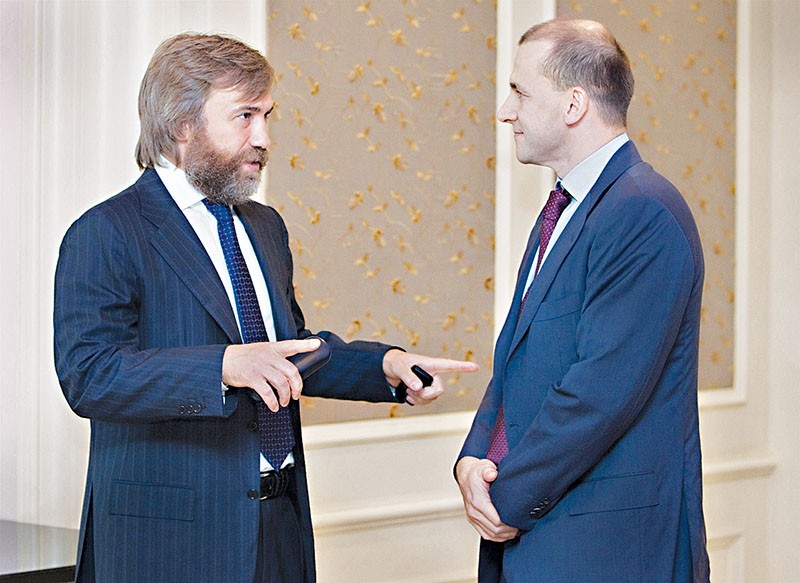
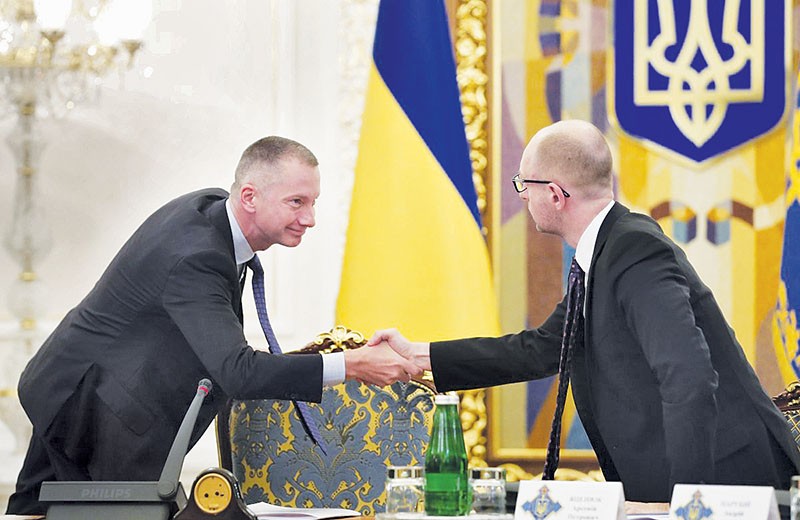
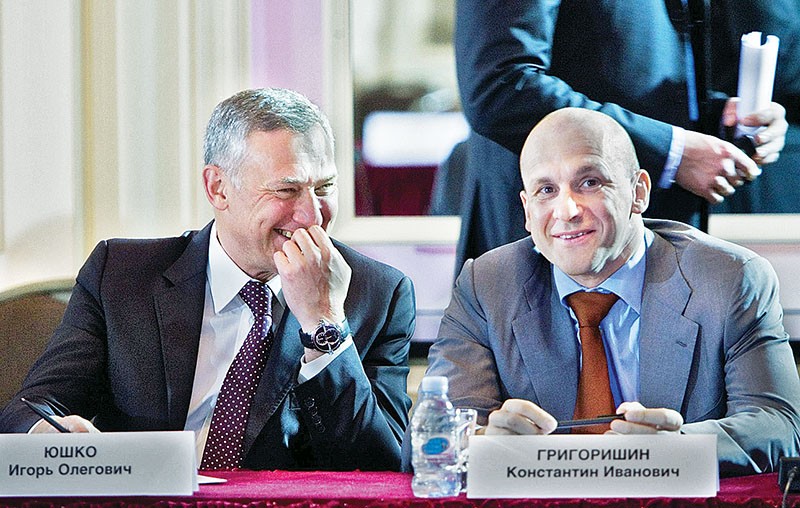

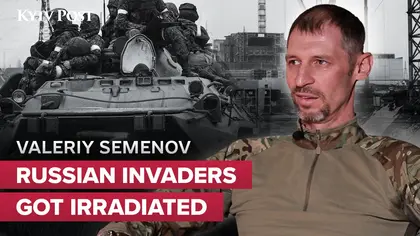
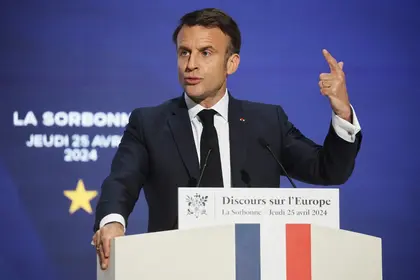
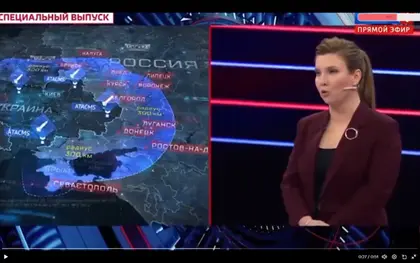
Comments (0)